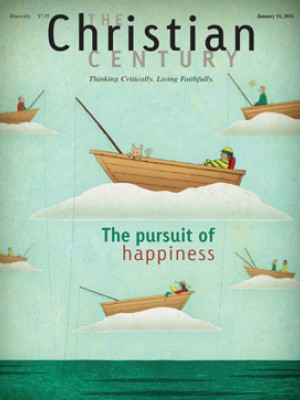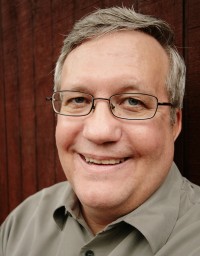Religion book beat
In my capacity as an editor for Baker Academic and Brazos Press, I annually attend the meetings of the American Academy of Religion and the Society of Biblical Literature. These conferences always provide occasion for reflection on current trends in theology and biblical studies. My major impression after the meetings held this past November was that there is a lack of any large-scale movements or trends in the theological academy. Beginning in the 1980s, biblical studies saw a massive output of work on Jesus of Nazareth—what is known as the Third Quest for the Historical Jesus. And in the late 1990s, Radical Orthodoxy enlivened several packed sessions at the AAR. But nothing that is happening now is remotely on the scale of those developments.
A biblical scholar remarked to me that "biblical criticism is exhausted." But scholars continue to search for what lies after it. Theology, meanwhile, seems to have broken into a wide variety of subfields with no one school of thought dominant. People seem reluctant to identify, let alone jump on, any particular bandwagon.
Read our latest issue or browse back issues.
But one major formal development is worth noting. I mention it gingerly, because of what may be construed as a conflict of interest on my part. Though denominational and university presses continue to publish copious and important work, the center of gravity in publishing has arguably shifted to houses with evangelical bases or connections. The conspicuously large bookselling booths, and presumably concomitantly robust sales, now belong to Eerdmans, InterVarsity Press, Baylor University Press and Baker Academic and Brazos Press.
Some academics view this development as a cause for alarm, resorting to the f-word, fundamentalism. But such names as N. T. Wright, Miroslav Volf, Richard Hays, David Gushee, Peter Leithart and James K. A. Smith need only be mentioned to dispel arguments that evangelicalism, broadly conceived, lacks sophisticated and rigorous thinkers.
Whatever large trends are occurring, certain issues and topics stood out in book exhibits and conversations. For example, there is a revival of interest in the writings of the apostle Paul. As global capitalism continues its turbulent reign and as most forms of working communism have died out, Marxist and post-Marxist thinkers such as Slavoj Zizek, Giorgio Agamben and Alain Badiou find in Paul various grounds for resistance. Of course, these authors approach Paul on thoroughly materialist, nonsupernaturalist terms, so there is much for theologians and biblical scholars to debate about the new claims laid on Paul.
In a very different realm of discourse, that of conservative evangelicalism, books are brewing on evolution and the historicity of Adam (and Eve). These books will challenge Adam's historicity, putting forth categories other than history to designate Adam's status. Such arguments are passé for mainline scholars, but one stalwart evangelical scholar predicted hot and heavy fighting to come on the subject within conservative evangelicalism.
Many books are taking up the topic of religion and race. Duke Divinity School houses three scholars who have published significant books in that field, all based in both generous Christian orthodoxy and savvy appraisals of critical theory: Willie Jennings's The Christian Imagination, J. Kameron Carter's Race: A Theological Account and Brian Bantum's Redeeming Mulatto.
I also noted a number of books on the afterlife. Continuum Press sold out its copies of Christopher Morse's The Difference Heaven Makes within the first few hours of the opening of the AAR exhibits. As the baby-boomer cohort ages and many now enter their twilight years, I suspect we will see more and more books on what lies beyond death.
Relatedly, there is much talk about apocalyptic thought and literature—exactly what it is and isn't, how it may be appropriated for contemporary concerns, and whether or not the interest in it is salutary. Scholars are reworking ground earlier tilled by the New Testament scholar J. Louis Martyn. And young, provocative thinkers such as Nathan Kerr are employing the category of apocalyptic to check what they view as an overvaluation of the church that puts it on par with the revelation of Jesus Christ. Much of the discussion around Kerr's thesis is already taking place online among theological bloggers.
Blogging itself was the topic of considerable conversation at the meetings. Not a few scholars are wary of blogging, especially with its lack of any clear gates or gatekeepers. As an editor and someone who is therefore a gatekeeper by definition, I share their concerns.
At the same time, I'm struck by the high level of discourse on such blogs as Ben Myers's Faith and Theology, Halden Doerge's Inhabitatio Dei and Adam Kotsko's An und für sich. In effect, the first drafts of forthcoming books are being written in the blogosphere. What you may read tomorrow in print, between covers, you may find today in half a dozen or so significant blogs.






